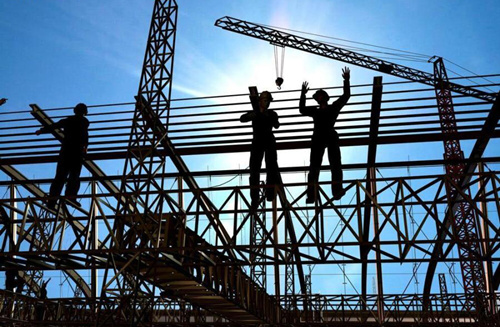Report: ‘B&R’ cooperation rising, legal risks increasing
Author:CHANG HONG Source: Chinese Social Sciences Today 2017-07-12
A recent report warned of various legal risks facing Chinese foreign direct investments.
The annual report on Development of “Belt and Road” (“B&R”) Construction 2017 was jointly released by the Institute of Russian, East European and Central Asian Studies at the Chinese Academy of Social Sciences and the Foundation for Reform and Development Studies under the China International Trust and Investment Corporation as well as the Social Sciences Academic Press on June 27 in Beijing.
The report found that China’s efforts to implement the “B&R” initiative and its pragmatic cooperation with the Association of Southeast Asian Nations (ASEAN) have achieved results in five key aspects of policy coordination, infrastructure development, investment and trade facilitation, financial integration and people-to-people connectivity.
More specifically, consensus has been reached about “B&R” cooperation between China and ASEAN. The establishment of the multilevel and multichannel communication and consultation platforms provides a guarantee for their cooperation. In terms of infrastructure development, the Pan-Asian railway plan is being implemented and the construction of transportation channels and ports is underway, improving facility connectivity. Bilateral trade continues to grow while mutual investment is increasing rapidly, industrial park construction is flourishing and there is constant innovation in the forms of cooperation, according to the report.
In addition, a multilevel financing platform supports “B&R” construction while finance cooperation is developing into more flexible and varied forms. Education cooperation has become an important link while cultural and social exchanges constitute a new pillar for China-ASEAN ties.
Although China and ASEAN have enjoyed close and fruitful cooperation in the aforementioned five key areas, some deep-seated problems still need to be solved. For example, cooperation is still in the exploratory stage and some policy details have yet to be clarified. Trade growth is slowing due to a lack of driving forces while an increasingly complicated geopolitical environment adds to the difficulty of cooperation.
To solve these issues, the report suggested deepening political mutual trust between the two sides, refining implementation strategies and increasing cultural exchanges to further promote “B&R” initiative implementation in ASEAN member countries.
The existing legal risks in “B&R” construction are highlighted in the report. Chinese enterprises considering investing and operating abroad might face a series of risks related to politics, culture, business, law and morality, most of which will ultimately be transformed into legal risks that directly determine the success or failure of their investment. It will come as a surprise to many that, according to the Chinese commerce ministry, 65 percent of Chinese foreign direct investments make a loss.
The report recommends four strategies: improving product added value through transformation and upgrading; avoiding anti-dumping and countervailing duty investigations via the expansion of foreign direct investment and overseas factories; building global brands and effective international business strategies rather than pursuing quick success; and solving the issue of market economy status as soon as possible.

